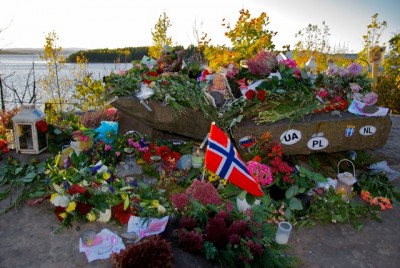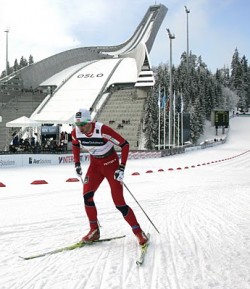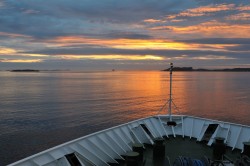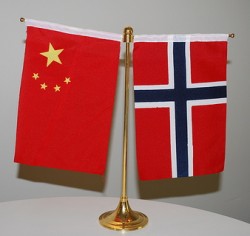From the elation of the skiing world championships last winter to the tragedy of the terrorist attacks in the summer, 2011 was a year that generated an extraordinary amount of major news from Norway. We’ve selected 10 of the stories that had the most impact both at home and abroad, and attracted the most attention.

The dramatic and deadly events of July 22 tops the list. A young, home-grown, right-wing Norwegian shattered the stereotypes of a fundamentalist terrorist when he bombed Norway’s government headquarters in downtown Oslo and then carried out a massacre on an island about an hour’s drive away. By the time he surrendered to police, 77 persons had been killed. The mass murder and sheer destruction amounted to a national tragedy, the likes of which had not been seen since World War II. It will take years to repair the material damage he caused. The loss of life in a country with such a small population as Norway’s leaves a hole that may never be filled.

Just five months earlier, the nation had been in what Norwegians call a lykkerus, literally, a state of intoxicating happiness. Norwegian skiers, both men and women, mined a phenomenal number of gold medals at the Nordic skiing world championships on home turf in the Norwegian capital of Oslo. Day after day brought new victories in cross-country skiing, ski jumping, relays and events that seemed to cement Oslo’s much-hyped claim to be the winter sports capital of the world. It didn’t take long before calls started rising for Oslo to bid for another Winter Olympics.
Nor did it take long for the country that had gathered nations for peaceful sports competition to suddenly join other nations in a UN-backed and NATO-led air assault on Libya. Norway, not known for its military might, became one of the most active participants in bombing raids and played a critical role in supporting the uprising against Moammar Gadhafi and ultimately, the longtime dictator’s downfall.
The emergence of a “new Libya” will likely allow the return of Norwegian companies, not least state oil company Statoil, which by most accounts had a great year in 2011. Norway’s biggest and arguably most important firm attracted its usual share of criticism for controversial projects disliked by environmentalists, and also some serious safety concerns, but Statoil chief executive himself has called 2011 the company’s “most important” year in the past decade. It was highlighted by the biggest oil discovery of the year in the entire world, right in Statoil’s own “backyard” in the North Sea. Statoil also carried out Norway’s largest international acquisition ever and was expected to log the biggest profits in Norwegian history. “I won’t deny that it’s been fun,” Lund told newspaper Dagens Næringsliv (DN) just before Christmas. Given the enormous oil reserves waiting to be tapped on the Norwegian continental shelf, it’s likely the good times will keep rolling for years to come.

There was no doubt that the good times rolled for a full week in mid-June, when Norwegian Broadcasting (NRK) scored a major victory with viewers both at home and abroad for its unusual, non-stop coverage of an entire voyage by one of Norway’s famed Hurtigruten ships. The coverage began before the vessel left Bergen and ran until it sailed triumphantly into Kirkenes in the far north, with none other than Queen Sonja waving from the royal yacht in brilliant sunshine. Along the way, millions tuned in while tens of thousands of others gathering along the coastline and in tiny ports to welcome the ship and maybe get themselves on national TV. The world tuned in as well, thanks to Internet coverage, and the ratings were huge. It all turned into a national celebration of Norwegian pride in the country’s scenery, its shipping history and fellowship as the show united north and south in a manner hardly seen before.
The voyage took place in mostly gorgeous weather, unlike that which plagued most of the rest of the country during much of the year. The weather was an ongoing story in itself, from the bitter cold of last winter, to the pouring rains of the summer and autumn and, ultimately, the severe storms that battered Norway’s coastline and climaxed in a hurricane over the Christmas weekend. As Norwegian officials made attempts to address climate change, amidst much criticism over their commitment, the climate continued to cause problems.

While temperatures warmed up as the year went on, a harsh chill continued to characterize Norway’s relations with China. By the end of the year, they seemed stuck in a deep freeze, after China rejected overtures by Norwegian Foreign Minister Jonas Gahr Støre. The tension with China began in the fall of 2010, when the Norwegian Nobel Committee awarded the Nobel Peace Prize to Chinese dissident Liu Xiaobo. China was furious, blamed the Norwegian government and has frozen relations at the highest political levels. Chinese authorities lost face over the Peace Prize, which was widely praised elsewhere in the world. There’s been little progress in restoring either face or relations.
A thorny internal issue in Norway, the fate of undocumented workers, also remained in limbo even though a highly celebrated case at the start of the year ended happily for the most well-known undocumented resident of them all, Maria Amelie. Originally known as Madina Salamova, Amelie came to Norway as a teenager with refugee parents from North Ossetia in Russia. They didn’t leave when their asylum application was rejected, and Amelie managed to finish school and earn a master’s degree from the prestigious university NTNU in Trondheim as an illegal alien. She was ultimately arrested and sent out of the country amidst great public outcry. The government saved face in the form of a new law that allowed Amelie to return to Norway because she had a solid job offer in Oslo. She’s now happily working for a technical publication Teknisk Ukeblad, says she’s proud to be paying taxes and has a bank card. Many others like her, though, remain underground and the issues surrounding undocumented workers are far from resolved.
Labour issues also played into another scandal that broke at the beginning of the year and was still having repercussions months later. It started when Norwegian Broadcasting (NRK) revealed that staff at several nursing homes in Oslo, hired through employment agency Adecco, had worked more than 80 hours a week with no overtime pay, and even had slept in makeshift quarters in a nursing home basement. The illegal labour practices were found to exist at other institutions, and were a major embarrassment for city officials who had outsourced the positions to Adecco and other private employment firms. Adecco ended up apologizing profusely, paying fines and retroactive wages and losing contracts. As late as last week, similar violations of labour law emerged at another employment agency. Officials promise ongoing investigations.

There’s been a lot of other important news during the past year, including the municipal elections in the fall, the failing fortunes of the Progress Party, a wave of rapes and other forms of street violence, controversy over construction of a new Munch Museum and celebrations surrounding polar explorers Roald Amundsen and Fridtjof Nansen. But none stirred quite the public engagement as a shortage of butter in Norwegian grocery stories. The lack of butter, occurring in the run-up to the holiday baking season, irritated consumers, pointed up the shortcomings of Norway’s protectionist agricultural policies and caused a certain amount of embarrassment for Norwegian dairy officials, as coverage the”butter crisis” spread worldwide.
To review all our stories published during 2011, click on our ALL STORIES feature.
As Norway slides into the New Year, many of the stories from 2011 will continue into 2012. This website will do its best to try keeping up with the Norwegians. We hope you’ll keep clicking in and support our efforts.
Happy New Year!
Views and News from Norway/Nina Berglund
Please support our stories by clicking on the “Donate” button now:

